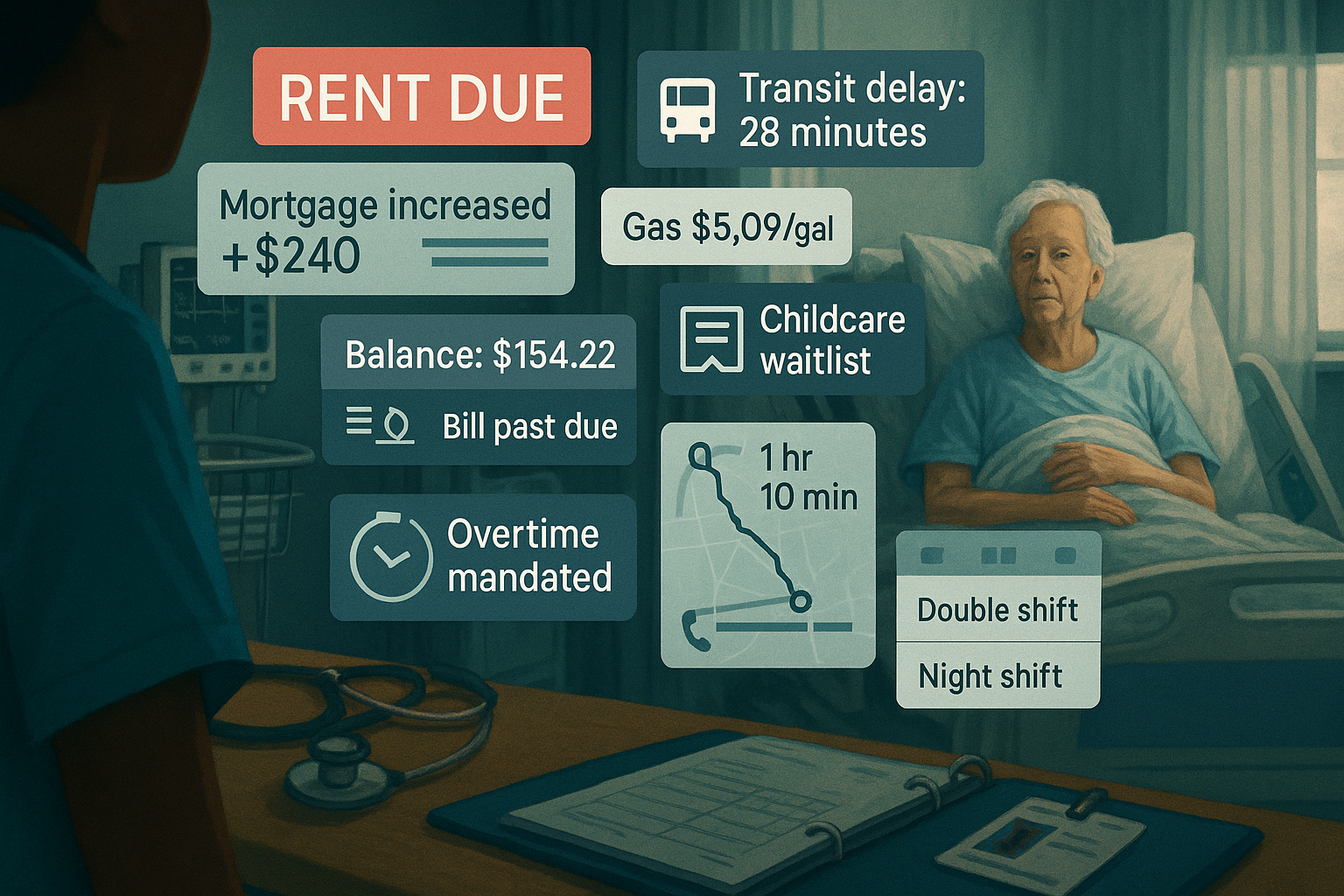In a new qualitative study in Critical Public Health, Iffath Unissa Syed of Pennsylvania State University and Rachel da Silveira Gorman of York University, a core member of York’s Mad Studies Hub, trace how rising costs and the housing crisis are impacting care workers.
Drawing on in-depth interviews with care workers, they show how housing costs and transportation barriers drain time and money, narrow margins for rest, and push workers to make hard choices about how to spend each hour with service users.
In this way, political decisions lead directly to rushed mornings and double shifts, creating a constant trade-off between meeting basic tasks and offering relational attention and care.
“Our data reveal that the levels of stress reported from inadequate housing, deficits in income, and problems related to affordability manifest in everyday experiences and lived realities,” they write.
The research by Syed and Gorman allows for an analysis of the quality of care provided as a structural outcome. If we want safer, kinder, more dependable care, they suggest, we have to fund the conditions that make that care possible in the first place.















